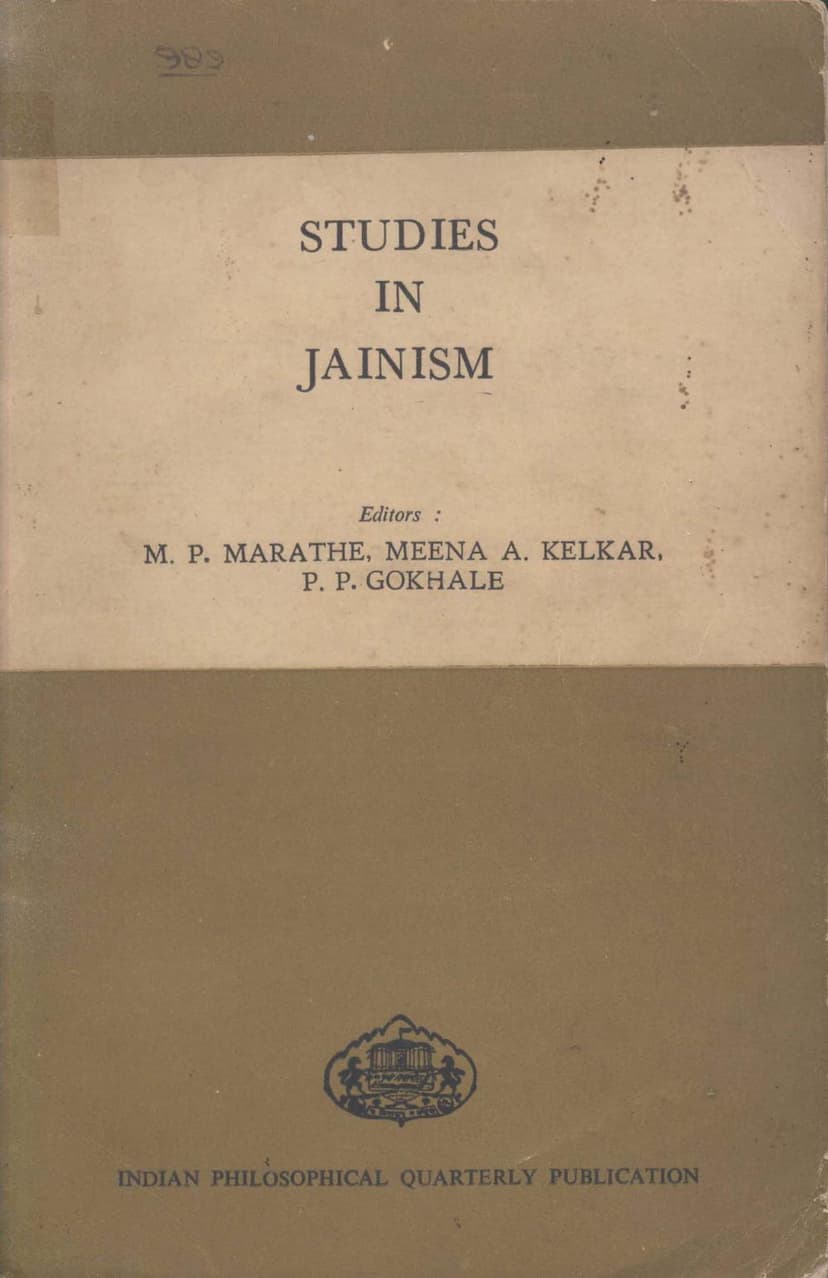Studies In Jainism
Added to library: September 2, 2025

Summary
"Studies in Jainism" is a compilation of papers presented at three seminars organized by the Department of Philosophy, University of Poona, between 1975 and 1979. The seminars focused on Jaina logic, philosophy, culture, literature, and its relation to modern scientific thought. The book, edited by M. P. Marathe, Meena A. Kelkar, and P. P. Gokhale, is divided into three parts:
-
Part I: Jaina Metaphysics and Ontology
- This section explores fundamental Jaina concepts such as dravya, guna, and paryāya, tracing their development through various Jaina texts.
- It delves into the Jaina concept of matter (pudgala) and its atomic structure, comparing it with other Indian philosophical schools like Samkhya, Bauddha, and Nyaya-Vaisheshika.
- The papers also examine the Jaina understanding of space (ākāśa) and time (kāla), including the concepts of lokākāśa and alokākāśa.
- The nature of the soul (jiva) and the doctrine of omniscience (sarvajñatā) are discussed, along with an analysis of philosophical terms used by Umāsvāti.
-
Part II: Jaina Logic and Epistemology
- This part is dedicated to the intricate systems of Jaina logic and the means of acquiring knowledge (pramāṇa and naya).
- It provides historical surveys of Jaina logic, highlighting key periods and thinkers.
- The central doctrine of syādvāda (the doctrine of conditioned predication) and its relation to anekāntavāda (the doctrine of non-absolutism) is explored.
- The papers analyze the function of the prefix 'syat' and discuss its connection to various forms of possibility, from conceptual to existential.
- The relationship between nayavāda and modern many-valued or three-valued logic is examined, suggesting potential parallels and differences.
- The text critically discusses the nature of ethical judgments and their justification within Jainism, noting how they avoid extremes found in Western meta-ethical trends.
-
Part III: Jaina Ethics and Religion
- This section focuses on Jaina ethics, distinguishing between individual (monastic) and social (lay follower) morality.
- The concept of ahiṁsā (non-violence) is presented as the cornerstone of Jaina ethics, encompassing both its negative and positive aspects, and its practical application in social life.
- The metaphysical implications of Jaina ethics are explored, particularly the ultimate goal of self-realization (mokṣa) and the Jaina view on the pursuit of happiness.
- The papers also touch upon the Jaina theory of symbols, particularly the concept of sthāpanā, and its role in religious practice and idol worship.
- A brief overview of Jaina mythology is provided, discussing the evolution of concepts like Tirthankaras and the Jaina cosmology.
The book's preface highlights the bilingual nature of the work, with some papers originally written in Hindi, and expresses gratitude to the editors and the University Leadership Programme of the Department of Philosophy, University of Poona, for their support. The publication aims to provide a comprehensive record of the seminars, offering valuable insights into various facets of Jaina thought.